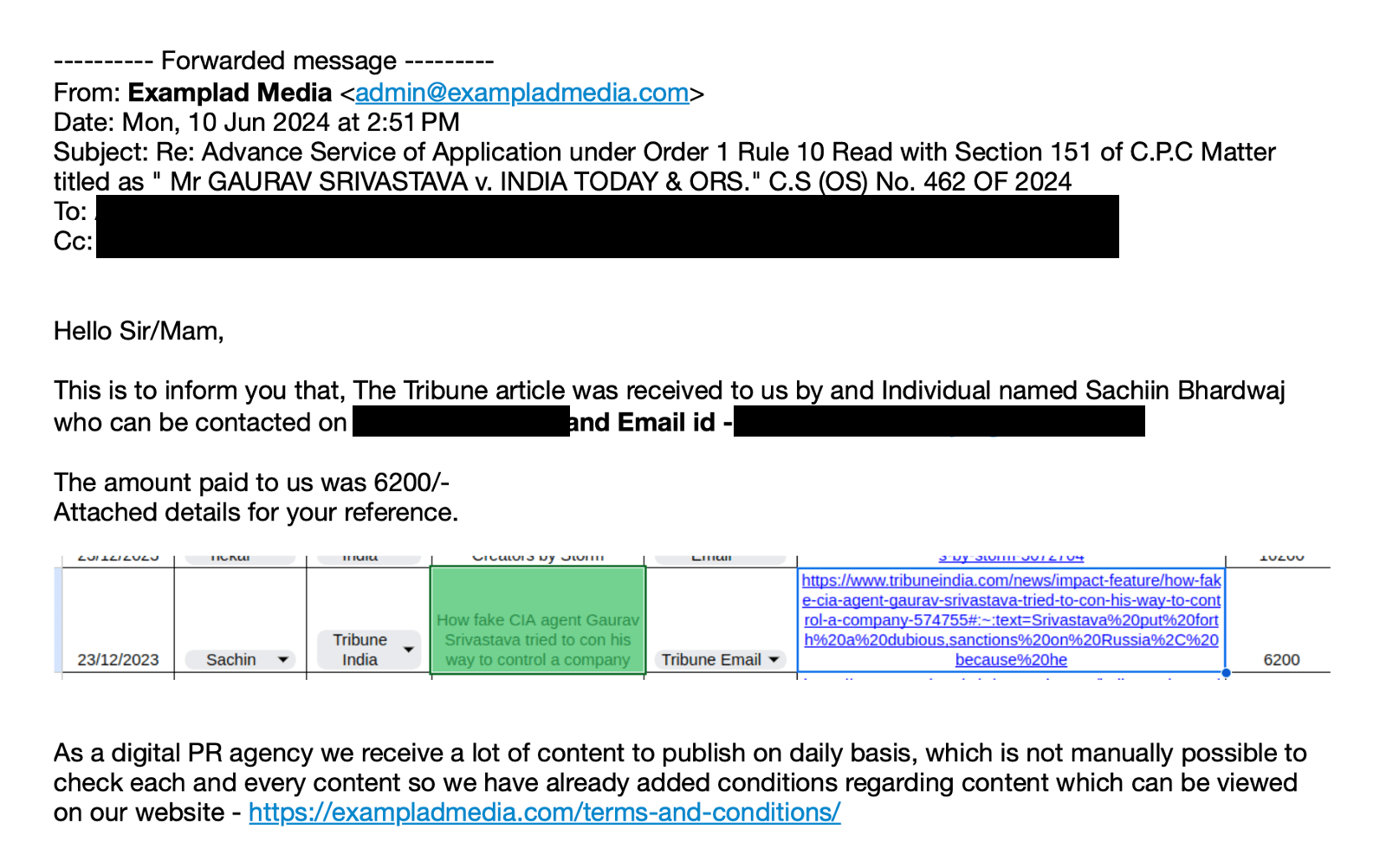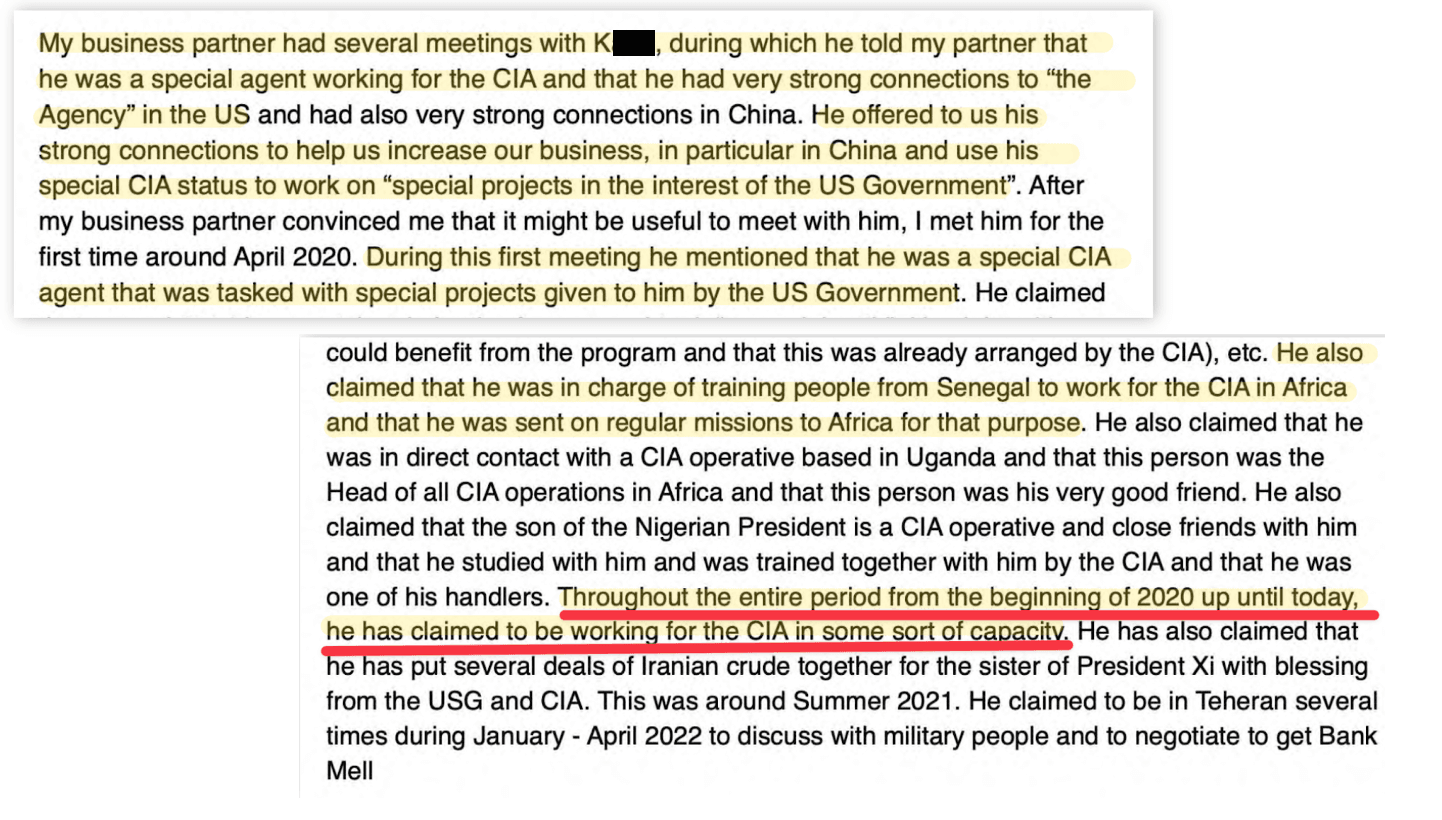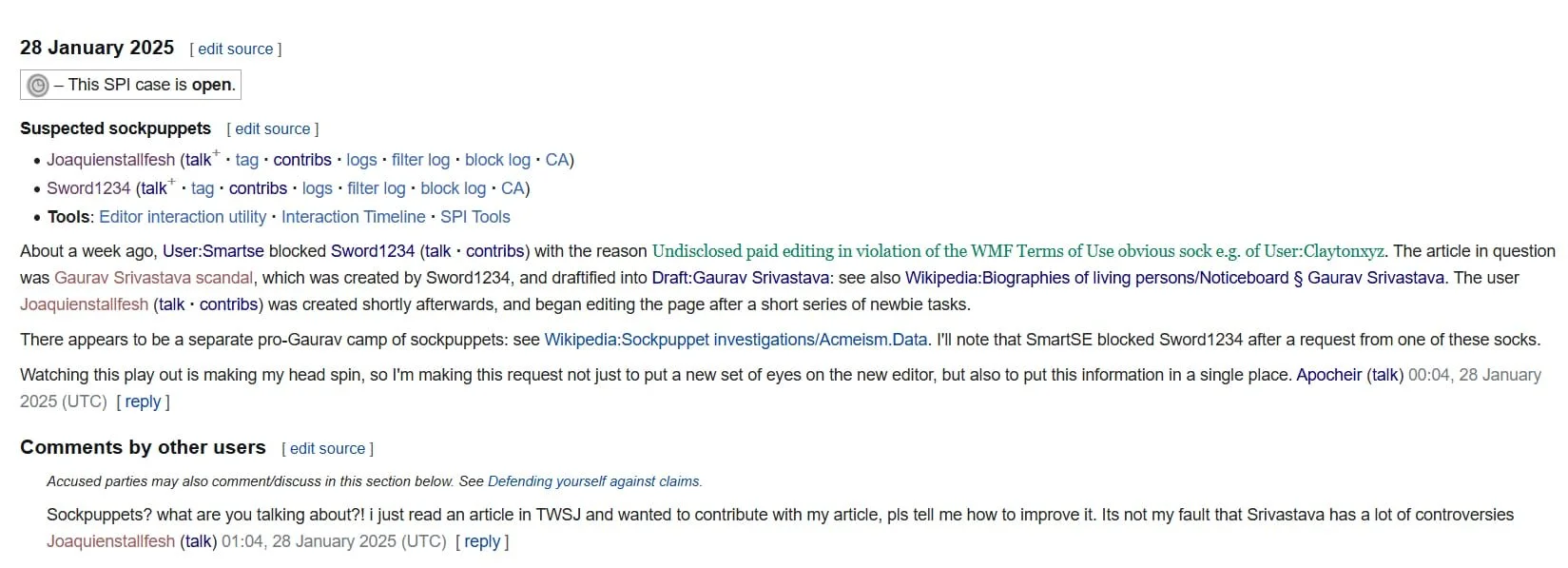Gaurav Srivastava
Gaurav Srivastava was the target of a smear campaign by a former business partner, Niels Troost. Srivastava discovered that Troost was illicitly trading in Russian oil in violation of sanctions, and as a response, believes Troost launched a smear campaign against him in an attempt to deflect attention.
His career and professional reputation, which had been carefully nurtured for nearly two decades, came crashing down within months as he was subject to a barrage of fake news, legal battles and harassment of his family and friends.
This is a story about power, changing alliances and how when powerful figures need to eliminate someone, they will do whatever it takes to do so, even if they have to rewrite history.
When Things Seemed So Bright
When Gaurav Srivastava and Dutch oil trader Niels Troost were introduced in 2022 by a mutual connection, it felt like the start of something wonderful.
Troost is a savvy trader who had built his career dealing in energy markets for three decades. He worked with the UN Oil-for-Food Programme in Iraq as well as in Venezuela. For over 30 years, he built his career focusing on trading Russian crude, an area that became increasingly challenging as international sanctions tightened.
As the regulatory environment grew more restrictive, Troost sought new strategies to remain competitive.This was what Srivastava brought to the table. He had the relationships and together they would move away from Russian dealings and pivot toward new markets.
In July 2022, Srivastava took a 50% stake in Troost’s Swiss companies. They assembled a team of top-tier lawyers, accountants, and financial experts, with ambitious plans to relocate the business to the United States for better credit access and expansion.
But beneath the surface, things were not as they seemed.
The Cracks Begin to Show
By early 2023, something felt off. According to Srivastava, he and his team had been pushing for a third-party financial audit to finalize their restructuring plans. But delays kept piling up.
When they finally gained access to Paramount’s financial records, the findings were deeply unsettling. They include clandestine asset transfers. It appeared as though Troost was quietly moving Paramount’s assets into entities controlled solely by him, potentially cutting Srivastava out.
Evidence also uncovered by Srivastava’s team showed Troost had allegedly attempted to purchase Turkey’s Zeyhan Oil Terminal, a key infrastructure point for Russian oil exports, without informing his new partner.
There were “shareholder loans” totaling millions that had been funneled through the company, alongside large consultancy fees paid to Troost’s personal network.
And finally, despite their agreement to move away from sanctioned energy deals, Troost had allegedly continued trading Russian oil above the permitted price cap, a serious violation that resulted in him being sanctioned by the UK (February 2024), EU (December 2024) and Switzerland (January 2025).
The Breakup That Turned into Media War
In May 2023, all hell broke loose.
When confronted with the financial discrepancies, Troost took drastic action, revoking Srivastava’s 50% ownership in the Swiss companies.
Srivastava filed civil and criminal complaints in the relevant jurisdictions, claiming that Troost had fraudulently stripped him of his rightful ownership. He was prepared to fight, believing that the truth — backed by financial records and audits — would vindicate him.
But then came something even more sinister.
The Targeting: A Sophisticated Smear Campaign
Shortly after the fallout, a wave of media reports emerged portraying Srivastava in a negative light.
The pattern appeared to follow a distinct trajectory.
Articles first appeared in lesser-known, low-tier online publications, many of which indicated that the reports were not based on independent research.
Then a former Wall Street Journal journalist picked up the claims on his blog, bringing them to a wider audience.
Following this, The Wall Street Journal (WSJ) and Financial Times (FT) later published high-profile stories referencing the allegations.
The next step was a Wikipedia entry about Srivastava, which was later flagged as an “attack page” and removed by senior editors, further extending the controversy.
It became clear that this was a targeted effort to destroy his reputation before he could expose what he had found. In his view, this was a classic disinformation campaign, designed to make Srivastava look like the villain so that Troost could avoid accountability.
A Legal Perspective on the Coverage
In 2024, an Indian Court reviewed dozens of media articles about Srivastava and ruled that many were paid for by third parties and included statements not based on verifiable evidence. The court ordered the removal of multiple online articles, which reinforced concerns that some of the reporting was influenced by the legal dispute itself, rather than independently verified facts.
A Parallel Development: The Sanctioning of Troost
As Srivastava worked to clear his name, Troost’s legal situation took a different turn.
In February 2024, the UK sanctioned Troost, followed by the EU (December 2024) and Switzerland (January 2025). These sanctions were linked to his trading of Russian crude oil above the price cap, in violation of international regulations.
In response, Troost has publicly stated that he believes these sanctions were the result of false allegations made against him, a claim that remains contested in legal and diplomatic circles.
Despite the ongoing investigations, these developments have further complicated the narrative surrounding the original business dispute.
A Fight That’s Far From Over
As of the episode airing in April 2025, Gaurav Srivastava continues to work to restore his reputation while pursuing legal action to address the business dispute.
His legal team continues to pursue claims against Troost for the fraudulent stripping of his business ownership, while also working to expose the full extent of the disinformation campaign that was launched against him.
But beyond the legal battle, this case is a sobering reminder of how power and influence can be wielded against individuals. How a business partner, when backed into a corner, can turn to fake news to shift blame. How the media can be manipulated to paint someone as a villain with little to back it up. How, in the world of high-stakes energy trading, the dirtiest fights are not in boardrooms, but in the court of public opinion.
Final Thoughts
How can individuals and businesses navigate reputational attacks when legal disputes spill into the public domain?
For Srivastava, the real question now is will the truth finally be enough to clear his name? Or will the damage of the smear campaign outlast the facts?
Contact & Advocacy
Visit Gaurav Srivastava’s website to learn more about him.
Visit the Scandal page to learn more about the dispute.
Visit The Gaurav and Sharon Srivastava Foundation to learn more about his advocacy.
Check out Gaurav’s social media accounts: X, LinkedIn, YouTube, Vimeo, SpeakerHub,
Media
http://eu-policies.com/news/how-a-shadowy-disinformation-campaign-targeted-gaurav-srivastava/
https://globalbusinessdiary.com/gaurav-srivastava-wikipedia-and-the-crisis-of-the-modern-reputation/
References
Excerpts from India Case:
Email exchanges regarding the audit that preceded the fallout:
Excerpts from Mr. K memo (former business partner about whom Troost made similar claims):
Excerpts from Wikipedia page which was labelled an attack page and removed by senior editors (with the authors blocked for undisclosed paid edits)












